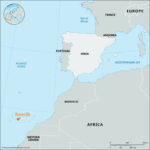Winter’s arrival brings a serene beauty, with snow-covered landscapes and festive lights, and thankfully, a break from the buzz and sting of summer insects like wasps. If you’ve ever wondered about the whereabouts of these stinging insects during the colder months, you’re not alone. Let’s delve into the question: Where Do Wasps Go In The Winter? We’ll explore their fascinating winter behavior and address some common questions about how they survive the frosty season.
Do Wasps Hibernate? The Truth About Wasp Winter Survival
Many believe that wasps, like some mammals, simply hibernate through the winter, tucked away in nests. However, this isn’t entirely accurate. While the idea of peaceful wasp hibernation is appealing, the reality is quite different for most of the wasp colony. Unlike bees, which diligently store honey to sustain their colonies through winter, wasps don’t stockpile food. This crucial difference means that the majority of a wasp colony, including the worker wasps, sadly do not survive the winter’s harsh conditions.
The Secret of Diapause: How Queen Wasps Survive Winter
So, if most wasps perish in the winter, how do they return every spring? The survival strategy rests on the shoulders (or rather, exoskeletons) of the queen wasps and some fertile females. These resilient individuals enter a state of dormancy similar to hibernation, known as diapause. Diapause is a fascinating biological adaptation where wasps significantly reduce their metabolic rate and activity levels, allowing them to conserve energy and survive unfavorable conditions.
During diapause, queen wasps seek out sheltered and insulated locations to wait out the cold. These winter hideaways can be surprisingly diverse. They may burrow underground, seek refuge under tree bark, or even infiltrate human structures like attics, sheds, and basements. These locations provide protection from the elements and temperature fluctuations, crucial for their survival.
As the days lengthen and temperatures rise in spring, these queen wasps emerge from their diapause slumber. Fueled by stored energy, they embark on the task of building new nests and establishing new colonies. They favor dark, protected spots with readily available food sources, which unfortunately can include chimneys, vents, and porches around our homes. Wasp activity typically peaks in late summer, when nests reach their maximum size, and worker wasps are diligently foraging to feed the growing population.
Preventing Wasps: Winter Preparation for a Pest-Free Spring
While the disappearance of wasps in winter is a relief, spring inevitably brings their return. The good news is that winter is the perfect time to take proactive steps to minimize wasp presence around your property when warmer weather arrives. As the saying goes, prevention is always better than cure. Instead of scrambling to get rid of wasps in spring, winter preparation can significantly reduce future problems.
Remember, queen wasps seek out sheltered locations to overwinter and establish nests. By making your property less attractive to them, you can discourage nest building. Here are some effective winter wasp prevention strategies:
- Secure Your Trash Properly: Wasps are opportunistic feeders, attracted to readily available food sources, especially sugary substances and proteins. Meat and soda are particularly enticing to them. Ensure all trash cans are tightly sealed, and consider rinsing out soda cans and food containers before disposal. Regular cleaning of trash bins and dumpsters also helps eliminate food odors that attract wasps.
- Seal Potential Nesting Sites: Wasps prefer to build nests in pre-existing cavities and structures for support and protection. Inspect your home’s exterior for cracks and crevices in siding, roofing, and around windows and doors. Seal these potential entry points during winter to eliminate attractive nesting locations.
- Declutter Your Yard and Property: Clutter provides ideal harborage for overwintering queens and future nest sites. Remove piles of wood, clear overgrown vegetation, and eliminate any unnecessary debris that could offer shelter to wasps. Storing firewood away from the house and off the ground is also a good practice.
Keep Wasps Away: Professional Pest Control Solutions
While winter DIY prevention measures are helpful, professional pest control services can provide comprehensive and effective wasp management. For over a century, pest control experts have been assisting homeowners and businesses in maintaining pest-free environments. If you’re concerned about wasp infestations or want to implement proactive prevention strategies, consider contacting a reputable pest control service for an assessment and customized solutions. Enjoy a wasp-free spring and summer by taking action during the winter months.

